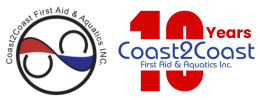There are many different CPR and first aid courses out there, but the majority of them are given for a period of 2 years. After that, CPR re-certification will be required to keep the license.
Here are several reasons why you’d really want to do this.
Keeping your CPR skills sharp.
It is always good to plan in advance and sign up for CPR re-certification classes at least six months before your current license expires. Even if you don’t need the certification for work, it is still crucial to maintain this skill in top notch condition so that you don’t panic or freeze should anything happen.
That and the additional fact that CPR, while not a complex practice to learn, can be physically taxing. Giving chest compressions to an unconscious person, keeping the compressions strong and delivering them at the right intervals for more than a few minutes will tire even a trained professional. You need to develop strength and muscle memory around the practice to be able to do it well. Practicing every two years is the very bare minimum if you want to keep it sharp.
A fast and precise response to an emergency is the main goal of those classes.
Follow and learn more advanced CPR techniques
Additionally, medicine as a practice, is based on science and as such never stands in one place. Procedures are improved and developed all the time. This means you will likely not only get a new licence when you get re-certified, but also learn a few new valuable things about the procedure.
For example, did you know that mouth to mouth resuscitation is no longer considered not only necessary but even simply more efficient. This happened in three stages.
First it was the only way of delivering CPR. Then it was accepted that CPR without mouth to mouth is almost as good. Now we know there is no evidence to support mouth to mouth resuscitation at all, since the procedure works just as well without it. Nowadays chest compressions are widely accepted as the more efficient method. We don’t know what will be discovered next; organizations like the National CPR foundation are continuously examining common practices and their results to develop more efficient CPR and first aid techniques.
Finally, re-certification can now be done at least partially online. Online CPR renewal, while slightly less efficient than full CPR recertification, is still much better than no CPR re-certification at all.
We urge everyone to get your licence renewed on a regular basis so that you have a better chance to save a life in an emergency.



